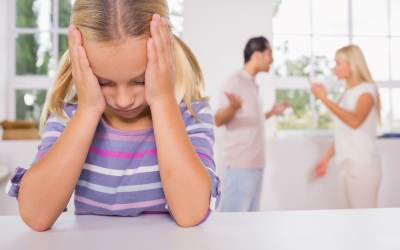Could Your Child be at Risk of Tug-of-War Parenting?
As parents, you provide the firm foundation for family wellness, so what happens when those foundations are shaken? You’re responsible for your child’s wellbeing, and most parents understand the seriousness of that responsibility, but sometimes children can become the victims of parental tug-of-war.
Whether you’re going through a bad patch or even considering splitting up, putting your child in the middle of every argument can wreak havoc on their wellness. No child wants to hear their parents slinging mud at each other, or to be subject to sob stories and have to choose sides. Often, children who are put in this tug-of-war situation end up resenting both parents, and become involved in dysfunctional or abusive relationships themselves, with anyone who will show them attention.
This is the story of teenagers like Sandeep, who came to husband-and-wife therapists Rajan Bhonsle, MD, and Minnu R Bhonsle, PhD, for help dealing with his tug-of-war parents. ‘He had grown up witnessing prolonged depression and suicide attempts by his parents,’ the therapists explain. ‘Accompanying his parents to psychiatrists and rushing them to hospitals to have their stomachs pumped after an overdose of drugs was part of his childhood. After every attempt, they would tell him how the other spouse was responsible. And how much they actually loved him.’
Even though many parents would say they love and care about their children, sometimes this is not so noticeable in their behaviour. According to Dr Minnu Bhonsle, using your child against your spouse ‘is nothing short of child abuse. By making your innocent children pick up the tab for the hostilities between you and your spouse, you scar them emotionally for life.’ Your children look to you as their solid foundation, relying on you for their personal security and safety. However, when they have to witness your open hostility, and are dragged into the middle of things, they can no longer feel secure. Plus, even if you resolve the argument, your children aren’t likely to be there to see it, and so they are exposed to the fight without the closure of the peace-making afterwards.
If you openly expose your problems to your children, the chances are that they will blame themselves for what’s happening between you, and so won’t stop you from leaning on them. Sharing the burden of both parents is the worst thing for your children, psychologically speaking, as they become “emotional orphans”. There is a role reversal in which your children have to shoulder the responsibility of family wellness, and be kind of parents to their own parents. Those on whom the kids depend are now depending on the kids, which can play havoc with their mental health.
There are so many different kinds of families out there that there’s no “normal” family in the world, but there are functional and dysfunctional ones. Your family is dysfunctional when its members cannot attain the desired goals of closeness, self-expression and meaning. It is in your family that your children learn their values and attitudes, so if the home is one of hostility, anxiety, stress, and depression, this is what they will learn and express. Your children will carry these attitudes with them throughout their lives, so it’s important to understand that having a healthy and harmonious relationship with your partner is not only good for the two of you, but also in the best interest of your children. This affects their wellbeing now and in the years to come, but by using your children against your partner, and vice versa, you’re condemning your kids to the same reality that you’re fighting in now.


Comments are closed.